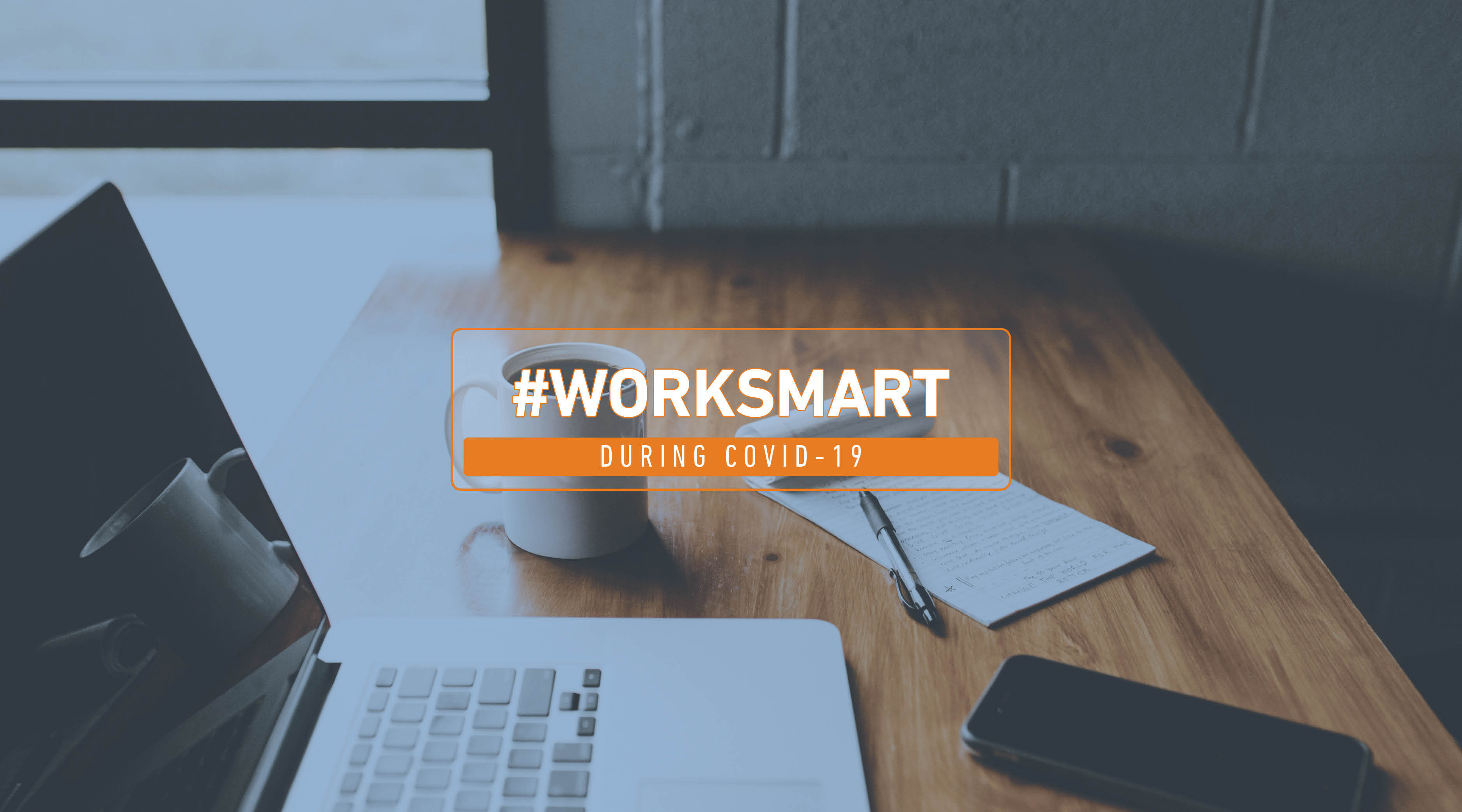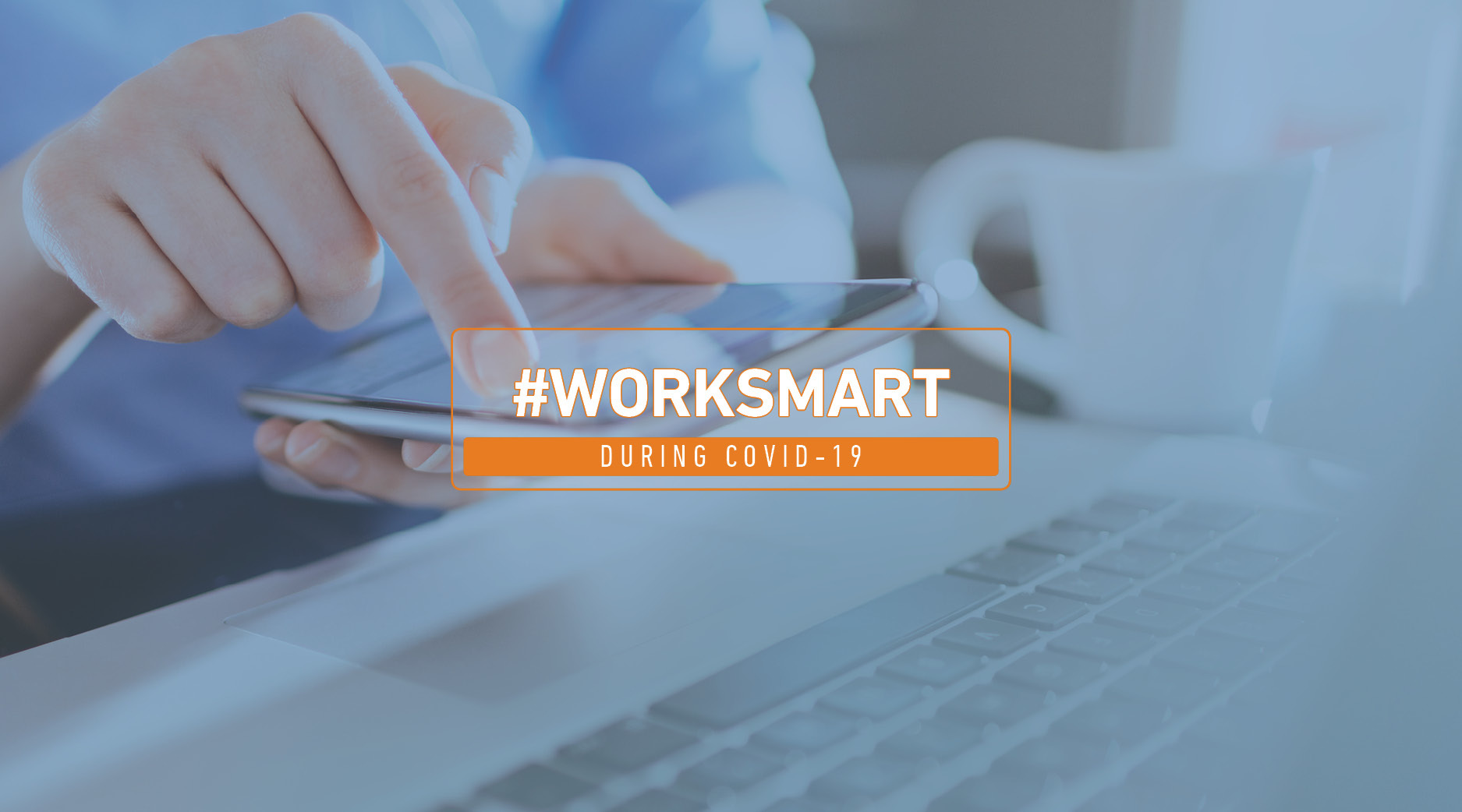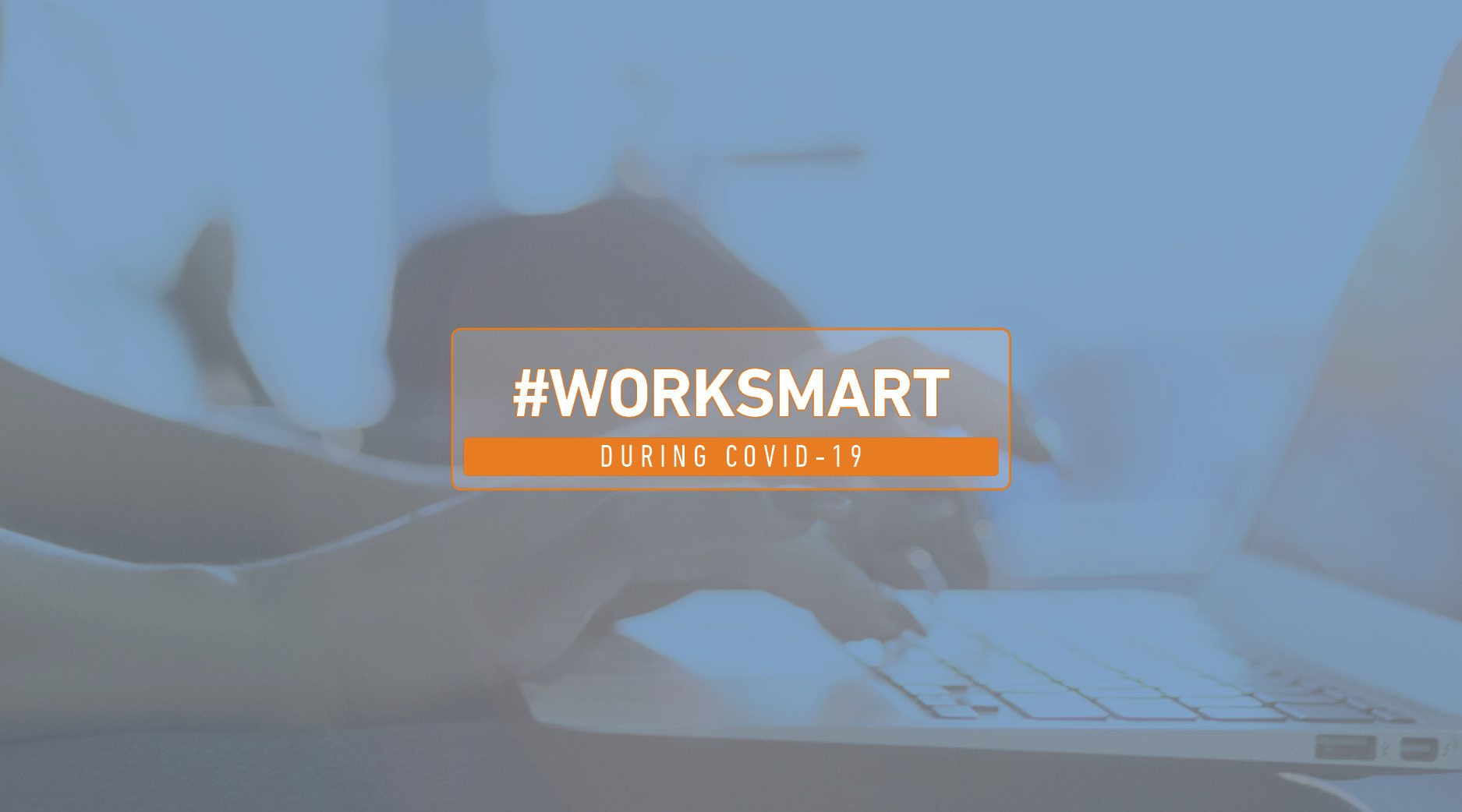If you are currently looking for work, what are your expectations for your next job? If you find yourself weighted down from the pressure of the past year, here’s how to start making progress and expect more in your job search as you look ahead in 2022.Seek Out a SponsorYou don’t need to go it alone –– look for help in your next steps. According to ManpowerGroup research, women are more likely to say that relationships rather than overt self-promotion will help them get ahead. In this regard, women can be helped through sponsors or those in higher levels who move beyond mentorship and actively help promote female colleagues. Find someone who can help boost you up, and you can do the same for others.Recognize Your Transferable SkillsIf you’ve been out of work, if may feel like you are falling behind on your skills. In fact, you may be practicing transferrable skills that help in the next role. If you find yourself teaching from home or volunteering, these are skills that you can bring up in a job interview that shows your continued growth. Of all transferable skills, learnability is the foundation. Learnability is the desire and ability to continually learn and grow throughout careers, and it still applies even –– and sometimes especially –– outside of work.Gain an Outside PerspectiveYou may feel like you know yourself better than anyone else, but you’re not necessarily the most objective evaluator of your own skills. Instead, you can hire a professional skill or personality assessment and leverage the results to identify your strengths. Similarly, you can find a career coach to help you better understand your value to employers. Finally, ask a mentor, coach trusted friend to provide you with feedback on your progress and what steps you need to take next.Don’t Get DiscouragedIn any job search, setbacks are inevitable. Expect that to happen, and don’t get discouraged when it does. Psychologists demonstrate that Three P’s can stunt recovery: Thinking a “failure” is personal (“It’s my fault”), pervasive (“I’m unqualified for any role”) and permanent (“I’ll never find a job.”) If you find these thoughts creeping in, reframe and view it from another perspective – it’s just a single job, it wasn’t the right fit this time, and the right job is still out there. Don’t give up, and keep expecting more.Remembering where your true talent lies will help nurture and grow where you have the most potential, and where you can thrive. Keep using your goals as a north star even in the face of setbacks, and your next step could land the perfect fit.
#WorkSmart During COVID-19
-
Tips for Job Searching in 2022
8 February 2022 
-
How to Help Workers Manage Chronic Stress
22 November 2021 The chronic stress of facing uncertainty day after day is taking a mental toll, and 2020 is set to be one of the most stressful years in history. Workers are suffering from burnout and loneliness as they manage remote work, affecting morale and productivity. In fact, a recent survey by Oracle found that the pandemic has propelled workplace stress, anxiety and burnout. ManpowerGroup Chief Talent Scientist, Tomas Chamorro-Premuzic, shares his top leadership tips around how managers can better support their teams. Check-in regularly with the teamMake an effort to schedule time in your colleague’s schedules that includes time for asking “how are you feeling?” A 21st-century leader needs to act as an employee coach and be willing to proactively reach out to employees to check on their emotional well-being. “A leader needs to act as an employee coach and be willing to have open and honest conversations where they can check in with their employees to see what their stress levels are and help support them manage these.”Be aware of manager stress levels Self-awareness helps managers understand how their own stress levels can impact the team. When someone is stressed, they tend to focus on themselves and are unable to care for or support others. Managers need to see themselves in the eyes of others, so to help grow self-awareness, make it easier for the team to provide managers with constructive feedback in a structured way.Practice self-care outside of workSleep well, eat well and exercise. If managers put their own well-being at the center of their daily routine, it will not only help manage their own stress levels but better support the team and their struggles during this pandemic. The goal should be not eliminating stress, but learning how to manage it with a balanced and supported environment. “And while it’s important to have a solid culture, creating a totally stress-free environment with no problems won’t help build a resilient team,” Chamorro-Premuzic said. The silver lining is that stress itself isn’t the enemy, if understood and managed effectively. As Chamorro-Premuzic said, “Some people see stress as a negative, but actually it can lead to many successes. In the workplace, resilience is often built through some form of stress or hardship.” In 2020, this rule is being put to the test like no other time in recent history, but it can be used to come together as stronger teams in the future.

-
How Organizations Can Promote Employee Wellbeing
4 August 2021 Across the globe, every workforce has been affected by the changing working conditions in a pandemic. Workers on the front lines face real physical health concerns, while remote workers face isolation that can lead to mental health challenges and burnout. In response, organizations have learned how to cope and adapt to help their employees. According to a new report from the World Economic Forum, business leaders can care for the health and wellbeing of employees as we start the new year in the following ways. Adapting to the expansion of remote work The future of work has already arrived for a majority of the online white-collar workforce. Eighty-four percent of employers are set to rapidly digitalize working processes, including a significant expansion of remote work—with the potential to move 44% of their workforce to operate remotely. To address concerns about employee well-being, 34% of leaders report that they are taking steps to create a sense of community among employees online and also looking to tackle other challenges posed by the shift to remote work.[1]Providing upskilling and technology mastery Developing and enhancing human skills drives economic success, individual wellbeing and societal cohesion. That said, the past decade of technological advancement has also brought about the looming possibility of mass job displacement by technologies. What is needed is a revolution in education, and in continually training the workforce for transitions. The coming decade will require purposeful leadership to fulfill human potential, which leads to a confident and productive workforce.Creating frameworks for human capital Over time, a business may lose sight of just how valuable employees are to the organization, so the International Business Council of the World Economic Forum recommends creating a set of metrics and framework to track the value of human capital. A successful workforce investment strategy includes identifying workers being displaced from their roles, managing the displacement, funding reskilling and upskilling, motivating employee engagement in this process and tracking the long-term success of such transitions.Ultimately, the World Economic Forum asserts that “no firm can prosper for long if it proves damaging to the social fabric around it.” In a time of extraordinary challenges, the success of a workforce is the success of the organization.1.The Future of Jobs Report 2020, World Economic Forum

-
Searching for Jobs After College
12 May 2021 Moving from college to the workplace traditionally requires major adjustments, including acquiring new skills on the job and learning to balance independent projects. Right now, economic and public health uncertainty only adds to the stress on college graduates. But stepping back, slowing down and taking concrete steps can help mitigate anxieties and improve your outlook. Here are ways to help navigate the unchartered waters. Build a mentor relationship In college, students can easily stop by a professor’s office hours or book an appointment with your academic advisor or job counselor. The same principles of mentorship are just as important to getting started in the workplace. After you graduate, you have to be more proactive about securing your own mentor. Having a mentor will enable you to learn what employers expect from new grads and you can use the information to make yourself job ready, and also help find new opportunities in sectors that are hiring. Take a skills inventory Does your resume reflect all that you are capable of accomplishing? Make sure that you reflect not just your major and hard skills, but also soft skills like learnability that shows you can make adjustments during turbulent periods. Research from ManpowerGroup has concluded that 65% of the jobs Generation Z will perform do not even exist yet, and right now is certainly a time of disruption and change. Show how your past has prepared you for a future that is evolving and being invented in front of us. Be open to new forms of work Look beyond the full-time permanent roles. In some sectors, hiring is ramping up right now for temporary or short-term work. Taking a temporary job to help meet demand may provide an in to a company, or an end in itself. Today, nearly 9 in 10 workers are open to NextGen work– part-time, contingent, contract, freelance or temporary. As younger workers bring tech-savvy skills to the workplace, new graduates can turn to flexible employment opportunities where it is needed most. Reach out to help others Right now, it’s easy to develop tunnel vision with respect to your own needs. No one will blame you for that. But many others are going through the same uncertainty, and seeking ways to help is not a zero-sum game. Over time, how you treat others builds a reputation. Recognizing others need assistance, offering to be of service through small acts like proofing someone else’s resume or sending an email with encouragement will become an extension of your resume. Do it for its own reward, and it’s likely to help deepen and expand your network as well. After years of being in the school system, it will take new grads time to transition to a new world –– and that’s never been true more than now. For college graduates, it’s important to be patient, keep being productive where you can be, and keep the faith.

-
How To Combat Burnout and the Pandemic Wall
9 March 2021 Working over the last year can feel like hitting a series of walls –– each one bigger than the last. If you’re feeling that way, rest assured you are not alone and there are steps to combat the stressors. Here are ways to fight off burnout. Ask for the help you needManagers and organizations can support you if they know what you need. Different situations may require different intervention strategies. For example, struggling to meet caretaker responsibilities with childcare when kids are learning from home could be alleviated with a schedule change, including working nights instead of days. For someone who feels immersed in the “always-on” digital workplace, requesting vacation days off could also help. Make sure to discuss openly your needs so they can be addressed. Enlist the buddy or mentor systemWorkplace relationships are extremely important for well-being, but they can be more difficult to maintain when everyone is remote. It may take intentionally reaching out for virtually “grabbing coffee” or checking in with a colleague, mentor or supervisor who can help provide mental, logistical or emotional support. Don’t overlook the simple power of connecting, even if that means a virtual hangout. Proactively help othersIf you are struggling, that means others are no doubt feeling the same way. Reaching out and providing a compliment, offering to help with a workload or sending someone a lunch delivery will help them and has the added benefit of giving you an emotional boost. Research has shown that kindness is one of the fastest ways to elevate mood and boost resiliency. Set boundaries and know when to turn offEven the highest performer can only run on adrenaline so long. The body and mind need downtime and regular rest periods. Intersperse periods of intense focus with downtime and recovery. The rhythms of hard work and rest need to balance over time. Set time with boundaries to unplug with peace of mind and come back rejuvenated. Finally, remember the basics: Take a lunch break in your day, walk around your neighborhood and get the recommended 7-9 hours of sleep to help make sure you’re on the top of your game. Work will still be there when you return, more rested, motivated and focused to keep moving forward.

-
Leadership, Skills and the Impact of the Pandemic on Progress to Parity
26 February 2021 Over the last year, the COVID-19 pandemic has erased hard-fought gains in gender parity at work. It’s been twice the negative impact as women have taken on both more at home while roles predominantly held by women have been downsized. At the same time, a new future is currently unfolding that needs to take into account the skills, leadership and resources provided by women. Behind every setback, an opportunity can be found. Employers must meet the call to support the women in their organizations and reshape the environment of work. Here are ways to move forward with women learning new skills, advancing in leadership and stepping into a post-pandemic world. Needs to reskillThe impact of the pandemic accelerated changes already taking place for in-demand roles. Reskilling and upskilling will benefit women to meet the increased demand for cybersecurity experts, data analysts, software and app developers. In addition, new roles provide opportunities in areas such as contact tracers, distance monitors and temperature checkers are emerging as fast as others decline in aviation, hospitality and entertainment. Ask for flexibilityWomen and all parents and caretakers can leverage the last year to ask for flexibility and remote work options to continue if they are available and have provided improved balance. Millennials in particular who have caretaking responsibilities are most eager to avoid the commute and least willing to lose flexibility they have gained. As the vaccine roll-outs continue and organizations plan for the future, make sure to communicate your work preferences and how the optimal arrangements benefit everyone. Consider career progressionFor many workers, it’s been a year of coping and getting by as best as possible under the circumstances. In fact, IT workers are the only sector that do not rank “just keeping their job” as top priority. Now as we look ahead, don’t lose sight of career development, progression and advancement. Women should feel empowered to move up in their organization and ask for responsibilities and positions of authority while being supported by their organization. Value your soft skillsWitnessing the biggest workforce shift and reallocation of skills since World War II means that skills that were en vogue in 2019 might now be out of fashion. However, soft skills continue to endure and be in demand. In times of rapid transformation and uncertainty, these so-called soft skills are more important than ever in workers and in leaders. As we move forward, women can emphasize abilities such as adaptability, communication and human connection to help themselves and their organizations navigate change. As we progress through and past the COVID-19 pandemic, the world needs women leaders more than ever. For International Women’s Day, the time is now to focus a spotlight on the necessity of women’s impact in the workforce.

-
Boosting Employees' Balance Working From Home
25 January 2021 Providing support for mental health and encouraging check-ins and downtime can help organizations enhance the benefits of a remote work environment for employees.The massive shift to working from home has been beneficial for employees and organizations. In a recentManpowerGroup Future of Work survey, 8 in 10 respondents want more remote work to better balance family life. But the survey also revealed some complexities about remote work, such as the inability to leave work at the office. Here are ways that managers can accommodate working from home in a way that is beneficial and promotes balance.Pay attention to mental health needsThere are a number of relaxation techniques that can lower stress, reduce the flight or flight response and help increase well-being for employees, from physical exercise to breathing practices. Organizations are providing help during these times with on-call counselors and virtual health appointments.Create channels for communicationWorking from home can feel isolating, but adding more video calls to the workday isn’t necessarily the antidote. Instead, managers can provide less intrusive but more timely feedback mechanisms, which include pulse surveys, peer group support and Slack or Microsoft Teams-style collaboration. Managers should use these channels to listen.Help manage workloadsOrganizations should understand who has additional obligations to care for children or parents, or family members that need attention. Globally, 40% of people say schedule flexibility is one of the top three factors when making career decisions, according to ManpowerGroup research. Managers can redistribute work to those who have capacity, or offer flexibility.Remind employees to take a vacationTaking time off –– even at home –– is just as crucial to employee balance today, maybe even more important than in “normal times.” Historically, the majority of North American employees don’t use all allotted vacation time. Unfortunately, overcommitment is counterproductive. Taking vacation time is a vital part of preventing burnout, maintaining job satisfaction and inspiring and motivating an employee’s best work. Encourage employees to take their deserved time off.Recognize generational differencesOrganizations should know that there are generational differences in attitudes about working from home, with Gen Z and Boomers more eager to return to offices for networking or collaboration. For these workers, additional virtual communication can replicate opportunities.Ultimately, helping balance during working from home comes down to recognizing and respecting boundaries, and communicating frequently. These guidelines can enhance the experience for everyone involved.

-
The Post-Pandemic Rules of Talent Management
11 January 2021 Over the past decades, rapid digital transformation has enabled organizations to completely reimagine the way they work and manage talent. From reliable video conferencing platforms to digital collaboration software, to ubiquitous cloud-based connectivity, and a data-centric approach to strategic decision-making powered by the synergy between artificial and human intelligence, an imaginary worker from the 1950s would surely marvel at the current landscape of work as if they were in a Black Mirror episode. And yet, it took a pandemic to truly accelerate this trend and transform the way most people work day to day, leveraging these foundational aspects of technology to dramatically change how we approach jobs and careers, perhaps forever. Indeed, for those with the skills to work remotely, the crisis has turbocharged an unparalleled shift toward more flexible work, and being able to live one life that better blends work and home — trends we know workers have wanted for some time.Technology has the potential to be a great enabler, providing humans with the tools to remain emotionally and socially connected even while in physical isolation, and the crisis has been the critical catalyst for change. At the onset of this crisis, talent literally left the building, and we’re now beginning to realize that in many places, it is unlikely to come back. In what will surely count as one of the strongest demonstrations for the extraordinary human capacity for adaptability, workers of the world have been able to remain productive even in lockdown.Humanyze, a technology firm that specializes in social sensing (led by MIT’s Ben Waber, who coined the now widely-used term people analytics), mined anonymous company e-mail, chat, and calendar data to find that working without an office has actually extended people’s working time by an average 10–20%, while also reducing work-related stress and negative emotions, increasing confidence and well-being, and increasing communication with close collaborators by a staggering 40%. In the early days of the pandemic, Microsoft reported a 200% increase in virtual meetings (mining their client data from Microsoft Teams), with a total of 2.7 billion meetings per day. Although virtual teams and remote work were already quite prevalent prior to Covid-19, it is likely that overall collaboration will actually increase when everyone is remote, with firms like Twitter and Square announcing their employees can work from home forever, and early indicators suggesting that business collaboration is stronger now than before the pandemic.As we look to the new next, unsurprisingly, many people have no desire to return to the office full-time, and, by extension, be forced to live close to it, especially if it is there mostly for symbolic or decorative purposes. As our newly released ManpowerGroup global analysis shows, 8 in 10 workers want more remote work to attain a healthier work-life fusion. To be sure, we had been talking about the benefits of an agile, hybrid, and fluid workforce for some time, but the pandemic marks the formal entrance to the age of digital nomads and a personalized workforce, with five salient trends (and opportunities) to consider:1. Technology Is Deepening Human Connections: Discussions about new technologies, such as AI, often paint a bleak and dehumanizing picture. For example, the author of Sapiens: A Brief History of Humankind, Yuval Noah Harari, has warned of the rise of a “useless class” of humans. And there are vastly exaggerated alarm bells being rung over automation. A more obvious trend so far has been that humans working with, and enhanced by, AI, almost always produce better results than humans without AI, or AI without humans. While the crisis accelerated the use of technology, which enabled the decoupling of work from a “place”, this shift was already occurring as a large proportion of organizations — large, medium, and small — made necessary investments in online collaboration tools like Zoom and Teams, growing the market for collaboration software to more than $45 billion globally (resulting in a 300% increase in Zoom’s share price since the pandemic started).Technology is rapidly becoming more human. We aren’t simply collaborating; we are running businesses, visiting family, attending weddings, and educating our children through technology, making the virtual world more humane, forging deep digital connections that are founded on true human connectedness. The crisis has converted collaboration software to “cohabitation software,” with Microsoft reporting a 10% increase in social meetings (including “pajama day” or “meet my pet day”) during the past few months. All this allows us to exist “in the same space at the same time” together, while we determine the place.2. Building Culture Outside the Building: Last year, when the world could not even imagine the present state of affairs, we presented our research on What Workers Want, and a Fortune 500 CEO asked us: “How do you possibly build culture when you don’t sit together”? Our response was that culture doesn’t exist within walls; it exists within people, so you have to build culture through people, wherever they sit. We could tell he was skeptical — yet the pandemic has proven that we can and must build culture from living rooms and home offices across the country. Workers knew this a while ago. It’s why people may use the exact same technology yet experience work in a very different way when they move from one company to another. Fundamentally, culture is “how we do things around here,” and it’s the sum of default behaviors, preferences, values, and decisions that make each organization a unique habitat, regardless of whether people frequent an office or not.Now company leaders are realizing it as well. Leaders can focus on building culture anywhere by refraining from micromanaging, getting over the politics of presentism, and learning to measure what each employee actually produces and contributes to the organization with as much objectivity and data as possible. Above all, by nurturing trust and fairness in relationships with employees, leaders can upgrade the company culture even in a virtual-only world.3. Work That Supports Life:Our ManpowerGroup research shows that the second concern after health for workers post-crisis is maintaining flexibility. Most workers want to work remotely a few days a week; they want a hybrid workplace between work and home that allows for better balance. But the office does still have a role in human connection. Companies like Ford are taking this as a moment to redesign how office space works. Others are investing in new hubs where people come together to collaborate and socialize. Gen Z employees are most positive about coming back into the office (on their terms), and they, especially, look to the workplace as a source of socialization as much as a place to network and learn. Gen X and Boomers, who are leading many companies today, enjoy the separation that the physical workplace brings in their efforts to keep work and home a bit more separate.It’s critical for leaders to realize that while workers may still want to occasionally come to the office, few want to come in every day. For jobs that must be in-person, it’s going to be important to flex the hours to minimize the commute, flex the shift to allow parents to be part-time teachers, and flex the days to enable the workforce to work in a way that supports life.4. Screens as the Great Equalizer: The great thing about video calls is that the boxes are all the same size — it’s a great equalizer. Prior to the crisis, we had all been in meetings where a portion of the team was in person and part was online. The online participants were primarily bystanders to the actual meeting. There was an advantage to being “in the room,” akin to being in the right place at the right time, and saying the right thing to the right person.As companies work to improve diversity, equity, and inclusion, technology provides the level playing field most groups want. Not only is it harder to engage in office politics, show-off, or manage up when you are in a Zoom call and everyone is watching, but the ability to capture, record, and analyze meetings data provides organizations with hard facts to evaluate DE&I in real-time. Diversity analytics, including a measure of how much people from different groups speak during meetings, whether they are included or excluded from the informal social networks that govern the power dynamics of an organization, and whether their ideas and comments are well-received by the group, promises to accelerate progress in a still dysfunctional area. It is a wonderful silver lining that technology and the global health crisis have sanitized a lot of the toxic politics and nepotism that corrupt the meritocratic ideal of talent-centric organizations: it is a lot harder to “pretend to work” when nobody sees you or cares about where you are.5. Talent Geographically Unleashed: The virus isn’t confined by borders, and neither is talent in a virtual world. For years, the model has been the same; when you’re interested in hiring talent, an early question is often “Will you relocate?” On most talent plans around the world, it’s the biggest career-limiting question, as it’s restricted career advancement and company growth for decades. However, in recent years, we have seen an empowerment of skilled talent calling the shots on separating where they choose to live and where they contribute to work. Software developers experienced the earliest shift — the work followed the talent. Then, with record low unemployment in many areas of the world last year, we saw this openness to location expand into other sectors, such as banking and consumer goods.Technology has now untethered talent from location. Talented individuals with in-demand skills in any sector now realize they can live where they choose and work where they are qualified. And employers now realize they can source “best of” talent from anywhere in the world as long as they have internet connectivity. The idea that workers have to physically move to get a job is gone, along with the costs of relocation. It’s actually quite simple: talented workers want to be free — free from geographic borders, free from physical location expectations, and free from government restrictions. As The Economist estimates, opening borders to free up talent would result in a $78 trillion increase in global GDP: “Labor is the world’s most valuable commodity — yet, thanks to strict immigration regulation, most of it goes to waste.” If technology and cultural organizational changes enable people to do their work from wherever they want, they will set talent free even with current immigration laws and restrictions, countering the recent political trend to slow down globalization in favor of nationalist policies.***Workplace and workforce have now been separated, while work, home, and school have been brought together. Technology is moving humanity away from the office and back into homes across our nation every day. We are building culture outside of buildings, with work that supports life on a more even playing field, with talent that can come from anywhere. As we look to the future, it’s time to unleash these new way of working for the long-term, with a focus on well-being, equality, and productivity that can work for both employers and employees long after this crisis ends. It’s time to embrace the truly global talent pool that is available to drive growth, regardless of where those people call home.In short, the global talent pool has arrived, and talent is the new global currency… if businesses have the culture, confidence, and technology to tap into it.*This article was originally posted on Harvard Business Review authored by Becky Frankiewicz and Tomas Chamorro-Premuzic.

-
How All That Gaming During Lockdown Could Help You Land Your Next Role
17 November 2020 Gaming bestows benefits beyond that rush of immediate gratification; you may be surprised to know it’s also enhancing your employability. Prior to COVID-19, people were already talking plenty about their “work” and “life” buckets – how to keep productivity and play in balance – even separate from one another. Now, it’s safe to say the pandemic has intertwined the two forever. And that’s not necessarily a bad thing: In fact, many of the skills you’ve likely picked up during play have been shown to improve skills and performance in the workplace. Because of COVID-19 lockdown orders and the pandemic’s impact on employment, gaming’s popularity has grown considerably in the first half of 2020. The good news is if you’ve been gaming more often during quarantine, chances are you’ll be especially ready to nail your next interview. Take our free Gaming Skills Translator to find out which skills you are building. In fact, every time you’ve picked up your console, you’ve learned more about how to adapt, learn and refine essential soft skills like critical thinking, collaboration, communication and creativity. For our Skills Revolution 2.0 Robots Need Not Apply report, we surveyed 20,000 employers across 42 countries on the impact of automation on the workforce. What we found: Soft skills are in high demand in the workplace, especially for employers eyeing an unpredictable economic future. And there is rising demand too for relevant skills from recent research of What Workers Want, Post Covid Report, they are, incidentally, also the most difficult skills to find and train employees on. When it comes to sought-after workplace skills, gaming can be a game-changer. Here’s a list of skills you may have developed in your downtime: Improved Critical Thinking Strategy and racing games like World of Warcraft and Mario Kart require you to work out which approaches will progress you to the next level. What motivates and engages you helps you hone your ability to make inferences and think systemically about solving the game. This sharpens your judgment and your approach to problem-solving, decision making (weighing up pros and cons of different tactics) and strategic thinking. Increased Capacity for Collaboration With the introduction of new formats like massive multiplayer online role-playing games (MMORPGs), modern gaming is shifting from an individual to a social experience. COVID-19 has only accelerated this trend because, for many during the pandemic, gaming has been the only way to “meet” friends and develop proactive social skills. In multiplayer games, you must work together with other players to win, enhancing your ability to collaborate remotely. Plus, these types of games often inspire IRL meetups and hangouts as well as improved relations with peers, family members or your community. This can translate to better working relationships with colleagues. Strengthened Communication Skills Your communication skills also get a workout in multiplayer games. In virtual environments, you can test and learn different communication styles. Players of Second Life, for example, where users build parallel personas for an online world, have demonstrated an improved ability to adapt their conversational style depending on the situation. Enhanced Your Creativity Sandbox games that let you roam free and do your own thing (such as Minecraft and Terraria) are linked to enhanced creativity. If you play these games, you may have better visual-spatial skills – the ability to envision movement of objects in space – important for careers in science and engineering. Today’s job market is unprecedented and unpredictable. What we do know is that skills like teamwork, critical thinking and problem-solving are needed now more than ever. So the next time you or your kids enjoy a favorite game on the nights or weekends, don’t think of it as wasted time. You may just be developing the skills you need to be a future-ready employee. To learn how your gaming experience translates into skills you can add to your resume, take our free Skills Translator Quiz.

-
Press Start to Begin: How Gaming Can Transform Recruitment
17 November 2020 Now that you’re working from home, there’s time for that vegetable garden. For craft projects. For building bonfires. You pause to look around and take it all in: The cherry blossoms are blooming. The sea is calm and soothing. You hear gentle waves blend melodically with light jazz. You decide to buy some fresh fruit and go for an idyllic walk. If this doesn’t sound familiar, you’re probably not playing ‘Animal Crossing: New Horizons’ on Nintendo Switch. Considered the perfect escape for the widespread anxiety being felt by many these days, the game has sold 13.4 million copies since its debut in March. Animal Crossing isn’t the only game-breaking sales records. Gaming has exploded since COVID-19. It has been recently reported that gaming during peak hours has gone up 75 percent since the pandemic began. While some see this as a distraction from the news cycle, it can also be viewed as time well spent developing critical – and marketable – soft skills. Look at it this way: When gaming, you must navigate a dynamic environment that requires you to learn and adapt. You have constantly evolving social systems. You have to combine tools and resources to learn new ways of working. You have to convert new knowledge into action. And you have to explore radical alternatives and innovative strategies in order to learn. The common thread? These are all highly marketable skills. The skills cultivated while gaming can be closely correlated to job performance. Games are constructive, situated and experiential learning environments. They require active experimentation. They also require a ton of patience and persistence. Did you just fall into a pit of lava? Go back and rehearse what happened. Learn and adapt. In fact, learnability is a strong predictor of career mobility, and the best way to learn is from experience. Work is always changing. Projects shift. Deadlines get moved. For many, every day is different. Employers need people with agility to maneuver those changes. It would have been unthinkable in early 2020 for companies to imagine the majority of their employees working from home. Yet that’s exactly what happened. While no one could have prepared themselves for a global pandemic, gaming does set you up to manage the unexpected with ease. Complex simulated environments require constant decision-making – an important skill, especially for workers who are confronted with change and need to adapt for their teams to succeed. Games can also offer insight into a person’s persistence, risk-taking, problem solving, mindfulness and attention to detail. If the types of games you play have the potential to give vast insight into the types of soft skills you possess, the question is why aren’t we using it to further identify your talents and match your skills to the right positions? Because most of us don’t know that gaming can be time very wisely spent. Even if we do, we don’t know to articulate its advantages on a resume or in a job interview. In a recent study, ManpowerGroup analyzed more than 11,000 games across 13 genres – from action-adventure to role-playing to music and indie – to identify the top soft skills developed in each gaming category and then mapped the skills that gamers were building to work skills. ManpowerGroup’s proprietary online Skills Translator allows candidates to input specific games, experience levels, and the amount of time spent gaming. The tool then provides guidance for how gaming experience translates into workplace skills. Finally, it’ll connect the candidate to potential job matches. Those cognitive and motor skills you rely on while playing Tetris are highly desirable in machine operators. Mastery of a game like Fortnite is invaluable to collaborative teams because it brings the unique skills of individuals together to solve a challenging problem. Are you more of an old-school arcade player? Games like Pac-Man improve decision-making, planning, concentration and persistence. Use ManpowerGroup’s free Skills Translator Quiz to help you understand how time spent playing your favorite games may just lead you to your best job ever. By better understanding how your specific gaming experience has sharpened your workplace skills, you’ll be more prepared to express your full value to future employers, both on your resume and at your next interview. To understand which specific skills you’ve gained from gaming, take our free Skills Translator Quiz.

-
5 Ways the Pandemic Has Impacted Tech Disruption
23 October 2020 Today’s digital workforce looks a lot different than it did a year ago, largely driven by a pandemic that caused organizations to move entire workforces to remote work virtually overnight.In a recent ManpowerGroup webinar, Technology + People = Transformation, Rajesh Gopinathan, CEO & Managing Director of TCS, Tata Consultancy Services, Jonas Prising, Chairman and CEO of ManpowerGroup, and Heather Landy, Executive Editor at Quartz, shared insights on how the pandemic has accelerated digital transformation, the impact on skills, and how companies can find the best blend of people and technology.Here are 5 ways that the COVID-19 pandemic has ushered in an acceleration of growing disruptive tech trends.Human ingenuity + technology will endureThe pace of how quickly organizations adapted to the pandemic shows the importance of human ingenuity. In many cases, organizations shifted entire workforces to remote work in the span of a week. This was accomplished through sheer resilience and ingenuity, showing that even sophisticated artificial intelligence can’t completely replace the human element. This trend of technology interacting with human capabilities will endure. Although a lot of organizations had the capability of making the shift before the pandemic hit, the crisis initiated the change and made it happen. Organizations going through transformations should remember that it's not about the technology alone, but more importantly about the culture and how you lead and what makes you really make that step change that transforms the organization.Flexible working models for allPrior to the pandemic remote working on a full-time basis was close to 4% to 5% of the workforce. Today, it’s about 35- 37% of the workforce with a blending of both the offline and the online worlds likely to continue. Workforces have been able to apply human ingenuity, the ability to adapt very quickly, and combine it with technology that while it was always there, we weren't embracing it to the same degree as now---we continue to do the work and maintain the productivity, but in a completely different way. Although human beings are social creatures that like to congregate, what this pandemic has proven is that organizations can create situations enabled by technology where we can combine work life and personal life in new ways that benefits the individual so that the flexibility is available when workers wanted and when they need it and it also benefits organizations all at the same time.Continuous learning is a mustGrowing reliance on technology will accentuate the polarization of the workforce between those that have the skills and the tools to make this transition and those that don't. The need for companies to invest in the tools and technologies to up-skill and re-skill their own workforce and create a learning culture within the organization have become even more essential. Many employers are still very unaware of the need to re-skill and up-skill their workforces, critical to growing their talent pool and their human capital in terms of skills and capabilities to execute on business strategies. The gap in training may eventually create a huge turning point in favor of a more scalable re-skilling and up-skilling effort at not only a company level, but also a nationwide level as this situation continues to evolve at such a rapid pace.Strong cultures will winIn a recent Quartz survey, 37% of respondents said that they felt their workplace culture had improved since the start of the pandemic while 15% said they felt that it had deteriorated. Companies that were already at the top of their game culture wise, employees have a favorable impression. The split suggests that building and maintaining good company culture is important, especially when workers are spread out. Organizations that do the right things in terms of increasing the rate of communication, engaging teams, and prioritizing health and safety can emerge from the pandemic with an even stronger culture. As for leadership, organizations tend to move slower with transformational changes than their own frontline talent, so it’s important to create the leadership culture that can successfully navigate today’s complex, fast-changing environment.Trust will dictate transparencyIn the personal space, people have moved a lot in terms of being willing to share information even knowingly. Today’s environment is used to transparency for good or bad, but the trust factor, what institutions individuals trust with that information, is going to determine how workers feel about sharing it. Many of the world's largest companies today are essentially the world's largest companies because individuals provide so much data for free, which is monetized by the companies. It’s how organizations manage the data that will determine how much individuals trust them with it. In the end, it will come down to individual preferences, and the trade-offs they are willing to make—which have to be built on a full understanding of what the data is being used for. Watch the Technology + People = Transformation webinar available on demand for additional insights.

-
Making the Transition to Returning to Work
29 September 2020 Getting back to work looks different today. For those headed back into workspaces, a new normal includes physical distancing, hygiene measures, regular testing, and other solutions that have yet to be decided upon for the foreseeable future. For those transitioning back to work, here are ways to ease the transition. Consider appointment-based or flexible scheduling Some people get their energy from working around other people, and some prefer the focus of working remotely on their own. Many people, however, prefer some combination of both work environments, and several workplaces are accommodating these scenarios. As an example, Core Creative is one agency that allows employees to make appointments to work in the office as an option. Discuss with your manager if a similar arrangement would help create an optimal return situation that doesn’t have to be all-or-nothing. Familiarize yourself with recovery procedures Organizations are creating checklists and routines for training and safety while bringing back their workforces. Familiarizing yourself may not only improve your outlook for returning, but it is also everyone’s responsibility to help keep their fellow colleagues safe. If your organizations spans different regions or countries, pay special attention to how relevant rules may differ and what applies to you. Communicate any concernsIt’s normal to be anxious and have questions about returning to work. If you have concerns, make sure to bring those to your manager’s attention, as organizations have a duty to make their workforce feel reassured that health, safety and wellbeing come first when returning to the workplace. Take note of multiple feedback channels where you might be able to bring questions, which may include anonymous pulse surveys and HR reporting mechanisms. If you have issues you want to raise, chances are others need to know the same things. Take care of your mental healthIt’s not just your physical health that needs attention right now. Create a mental health checklist that asks questions such as: Can I deal with the demands of life? Do I ask for support when I need it? Recognize any warning signs of burn out or needing help, and talk with managers if you need help and support when you return. Finally, remember that even this transition phase of returning to work will change. The phrase “new normal” has been used to describe this period. But the reality is there will be continual adjustments as businesses approach what was once considered “normal” workforce conditions. That’s why adaptability needs to continue at each step of the next “temporary normal,” and be prepared for each new chapter to unfold. Stay flexible.

-
3 Tips for Managers on Supporting Employees’ Mental Health
14 July 2020 COVID-19 and the need for safe distancing have accelerated the adoption of remote work arrangements by companies and it is likely to remain an option even after the pandemic is over. With more employees working from home, it has become harder for managers to detect the voice and facial cues of someone who needs support. There can be obvious signs of burn-out, fatigue or lack of engagement that are not picked up due to the lack of face-to-face interactions. Thus, when working remotely, managers and businesses need to be extra vigilant in checking in on team members, and being available with caring for mental health. Recognize the warning signsStress can manifest itself in a number of ways, including decreased satisfaction and commitment, lower productivity, increased personal conflicts, and a desire to disengage and disconnect. Employees may feel like they can’t admit they are burned out because it feels like a personal shortcoming or shows a lack of commitment. To get around this issue, astute managers will pay attention to changes in employees’ attitudes which may indicate a deeper issue. In a remote environment, this may mean explicitly asking employees about their mental state. This can include, for example, encouraging connections beyond work matters.Take something off their plateHigh performers are high performers for a reason – they take on a lot, and accomplish a lot. But eventually, even the most productive person can reach a breaking point. Recognize any early signs of stress, and relieve your busiest workers of certain roles or duties that can be reassigned. Everyone has a finite amount of hours in the day, and productivity without burnout requires strategic cutting back on the activities that consume energy.Show OptimismIf managers show optimism, their teams will too. As an article in Harvard Business Review shared, optimism is powerful and contagious. Attitude starts at the top and can set the tone for a difficult project or a remote team that needs positive encouragement. Leaders who demonstrate hopefulness and confidence in the future are better able to help their team members find meaning and purpose in work, especially under stressful conditions. Using humour can be a useful mechanism to relieve tension and foster greater commitment from teammates.

-
Accessing Mental Health Support During COVID-19
14 July 2020 Since the coronavirus outbreak, many people are finding their mental health and wellbeing affected in previously unforeseen ways. For many, the pandemic has brought about feelings of anxiety, stress and loneliness, while others are dealing with additional worries around finances and employment, or coping with bereavement.But there is help available. We have put together a number of resources you can use to support your mental health through the pandemic, and to access additional help where needed. Open the full PDF version for clickable links.

-
How Leaders Can Foster Innovation in Times of Crisis
29 June 2020 The leaders that emerge in today’s crisis will help innovate to solve the problems of tomorrow. In times of uncertainty and turmoil, leadership matters even more because the leader sets the tone for how an organization responds. Businesses need to be guided with a steady and reassuring hand, and yet pivot and be agile when the situation demands it. Grit, persistence and collectiveness are some of the traits of an innovative culture, and they are needed to face some of our biggest problems. As businesses face crisis on a global level, here are a few ways leaders can step up and help to foster an innovative culture when it’s needed most. Learnability is a must Learning quickly is more important than ever in times of massive change. Leaders need to have not only a high IQ and EQ, they also need a high Learnability Quotient, or LQ. Today’s problems are so complex and multi-faceted that they require learning as fluid situations unfold. Leaders need to be role models by seeking out different experiences, unusual perspectives and by being open to fresh ideas, ever as they foster a culture of learning in their organizations. Experimentation and communication When we are in uncharted territory, leaders must also have an understanding of the technical skills required to effectively transform their business in times of change, such as how to suddenly shift to remote work. They should surround themselves with experts and take time to stay informed of the latest trends, challenges and opportunities facing their organization and how to communicate those needs quickly throughout the workforce. Ability to adapt for the next crisis Crisis and transformation does not create a once and done situation. Change is dynamic, so agility and continuous adaptation is essential. Feedback is important to informing what steps leaders should take. Leaders need to innovate, experiment and learn fast and support their teams to do the same. Tomorrow’s environment is just beginning.

-
How Do We See This Ending?
29 June 2020 While it’s too early to tell when businesses will reopen or in-office work will resume, the way we picture the ending can tell us a lot about leadership. As we grapple with sobering unemployment numbers and hear of economic woes in nearly every industry, leaders face a balancing act of staying calm and reassuring, while also being realists about the state of their business.The question is what role optimism plays in maintaining the health and productivity of a team. Is the weekly jobs report half-empty or half-full? Positivity improves most aspects of job performance. It’s simply easier to stay productive when you feel a sense of purpose, growth or difference making. And it’s harder to maintain a rosy outlook when it feels like all is lost.Humans are hard-wired for optimism. It seems most people would prefer a distorted view of reality than one that delivers a cold truth. When Jim Carey’s character in Dumb and Dumber asks about his chances for dating Lauren Holly’s character, she gingerly replies that the odds are about one in a million. Her answer makes him ecstatic, exuberantly proclaiming, “so you’re telling me there’s a chance!”Many of us are choosing to see the economy through Jim Carey’s eyes. We believe there will be a “v-shaped” recovery. And there’s reason to believe the changes we’re experiencing during these times will have a lasting positive impact. We’ve wanted flexible working hours. We’ve been yearning to work from home. And now that we have these things, we’re unlikely to let them go.We’re basically biased toward optimism. As Thai Sharo, a cognitive neuroscientist at University College London, noted, “when it comes to predicting what will happen to us tomorrow, next week, or fifty years from now, we overestimate the likelihood of positive events, and underestimate the likelihood of negative events.” When it comes to seeing how the pandemic will end, our nature compels us to believe that it will all be magnificent. And why not? Reevaluating our conditions of employment in light of rapid change should have a positive effect on society.The optimists among us have pointed out how pollution levels are way down. The canals of Venice have turned clear. Animals are flourishing in cities. And we’re all suddenly interested in baking bread. When it comes to work, we’re becoming more empathetic, more flexible, and have a newfound appreciation for essential workers. These are all genuine reasons to be optimistic.Even as we’re grappling with insecurity and rapid change, great leaders can empower us with hope. According to Tomas Chamorro-Premuzic, ManpowerGroup’s Chief Talent Scientist, the best business leaders combine internal pessimism (in order to see deficiencies and foresee problems and threats), with optimism (exuding a sense of positivity and nurturing hope in others). To be sure, this feels intuitively better than the reverse: being internally overconfident while projecting external insecurities.The best leaders are the ones rallying their employees to see the best possible outcome. If they work in sports, they’re reminding their employees of how much the world will need them when they come back. If they work in the restaurant business, they’re pointing to the indelible cultural fabric that restaurants provide to our cities and towns. Privately, they’re grappling with the unknowns of whether there will be a baseball or football season, or whether the restaurant customers will be ready when they finally switch on the open sign.No one can see how this will end. But the best leaders enable their teams to see the happiest ending. Their external optimism is encouraging them to strive for that result. Even if the odds are just one in a million. They’re telling them they have a chance.To see more on this topic from Tomas Chamorro-Premuzic, see here.

-
Starting A New Job remotely
23 June 2020 When you’re starting a new role, your typical first day might consist of meeting with your new manager, picking up your equipment, trying to learn the names of your co-workers, and working out where the post room, toilets and printers are. But what if your new job is remote? How will you get to know your colleagues, get up to speed on your role, or know who to contact when you have questions?Here are a few ways to make your first remote day on the job a great success.Understand the onboarding processReach out ahead of time to your line manager or HR contact to find out what onboarding will look like. The organisation might mail a laptop to you, or they may ask you to use your own device. They might take you through an induction on your first day via Zoom, Skype or Microsoft Teams, or perhaps they will email you an employee handbook. The company itself may still be trying to formalise its remote working procedures, so the process may not be as smooth as usual. Make sure you discuss the logistics of the onboarding process beforehand and fully understand what to expect.Practice the “route”It’s common to travel to the location of your new job before your first day to make sure you don’t run into any issues or get lost. The same is true of a virtual first day. Start to log on early to allow yourself plenty of time in case of technical difficulties. Make sure all the appropriate software is downloaded ahead of time and you know how to use the technology.Pay attention to your presenceIt’s likely that your first day will consist of at least one virtual meeting with your manager or your team. While you may be used to working from home in casualwear, remember to dress professionally in order to make a good first impression. Pay attention to your virtual environment, including the lighting in your room, items in the background, and try to minimise external noise.Find out how your team communicatesIt’s important to learn how your manager and your wider team prefer to engage with each other. Do they rely heavily on email, or do they tend to utilise video or voice calls? Do they use any internal networks such as Teams, Slack or Yammer to keep in touch? With regards to your manager, do they like to receive queries as they come up via email, or would they rather tackle everything in a weekly one-to-one call? Are there particular times of the day or week that they prefer not to be disturbed? Keep in mind that your colleagues might still be trying to work out their preferences as they adjust to their new routine. But knowing your colleagues’ communication styles will help you integrate with the team more quickly and foster positive interactions.Make yourself knownUsually when you start a new job, you’d immediately be introduced to lots of people in the office and learn what they do. You’d also find yourself bumping into new people in the elevator or the kitchen and forging new relationships that way. This process is likely going to take a bit longer and require more effort when you’re starting remotely. Let people know you’re the new person in any online networks like Slack or Yammer, or by sending some short emails to other people in your division. If there’s a team meeting, try to find a moment to introduce yourself and your role. You might even need to remind people who you are when contacting them by email or on a conference call, since they won’t be seeing you on a day-to-day basis. Before making a comment on a group call, simply state who you are and mention that you’re new to the company.Find work buddiesSince you’re not going to be chatting to colleagues in the kitchen over a cup of tea or having a welcome lunch, it’s a good idea to proactively reach out to individuals to get to know them better. Set up a virtual coffee chat to find out about their roles, the projects they’re working on, and anything they think you should know about the organisation. Share any questions you might have and ask for recommendations on other individuals you should get to know within the business. What insights can they share with you about the culture of the organisation?Seek out opportunitiesThe pandemic is causing workplace disruption like we’ve never seen and circumstances are evolving rapidly. Due to the fast-changing situation, you might find yourself not as busy as you expected, or even that certain projects you anticipated working on have been shelved and other tasks prioritised. Don’t complain, but rather try to identify opportunities where you can add value. Reach out to others to offer your help, and speak up in meetings to suggest ideas. Think about the additional value you can bring to the business.There’s no doubt that this is a difficult time to transition into a new role. But by being proactive, patient and flexible, you can smoothly integrate with your new team and prove your worth to the organisation.Credit: ManpowerGroup UK

-
Distance Learning: How to Continue Education Remotely
26 May 2020 Learning can take many forms. The desire and ability to quickly grow and adapt one's skill set to remain employable throughout their working life, or learnability, can be practiced both in-person and remotely. Professional development doesn’t have to be attending a conference or a four-hour workshop. Here are ways to continue learning remotely and foster career development. Focus on the future Continue career conversations with your manager, even if they are virtual. Don’t lose sight of the goal: Getting ahead both today and in the future means constant learning and development. Leverage technology training It’s not always possible to train everyone together. That’s where technology can come in and reach multiple workers on a flexible schedule. Social media chat forums allow real-time peer discussions to address challenges. E-learning, videos, and gamification are all options that ensure learning can take place anywhere, anytime. Shift to microlearning Conferences and workshops build in breaks and socialization for a reason. Taking downtime helps keep attention fresh and facilitates learning to sink in over time. Harvard Business Review recommends focusing on microlearning, or short lessons on a single topic in a five to 10-minute segment. Take educational breaks Your brain was not designed to be constantly “on” throughout the day, and you need recurring breaks to replenish your focus on tasks. But your rest can be productive, rather than simply scrolling through social media. Give your brain a boost with your break. You can use an app that teaches you a new language, do a crossword puzzle, or read a chapter in a book. Search for something that energizes you to be more productive later.

-
Tips for Leading Virtual Meetings
19 May 2020 Running efficient meetings can be a difficult task under the best of circumstances. It can add to the challenges if all attendees are remote and reliant on technology. Here are tips to keep virtual meetings running smoothly. Set an agendaIt’s second nature to interpret physical and facial cues in person, but the task becomes harder when you can’t easily see everyone’s screen at once or if there is a lag in audio or video. This can lead to uncertainty about who should be contributing or people accidentally talking over each other. An agenda can help clarify a meeting by sharing ahead of time who is starting a conversation and then who is contributing. Over time, the flow will become more natural. Encourage participation In a time of physical distancing, it’s important to still connect with others on a human level and encourage active participation. Getting everyone to speak up in a remote setting can feel like a challenge since it’s easier to “hide” in a digital setting. First, provide time to talk socially, even putting aside time at the beginning or end of the meeting to share personal stories and small wins. Especially when there’s no physical place to gather, everyone needs a virtual watercooler. Second, manage participation by following five steps outlined by Harvard Business Review, which includes making sure the problem is felt by participants, and no more than five minutes goes by without people working on active solutions to problems together. Use meeting chat –– politely In a physical meeting, attendees can bring hands-outs, charts or slides. All those items can be used virtually by uploading and sharing links and attachments in the chat channel of the meeting for context about topics at hand. It can also be used for texting and asking questions while another person is speaking. But also use this politely by not dominating a conversation in the chat, just as you wouldn’t talk over someone in an in-person meeting. Use the chat function to supplement conversations, not replace them. Set up office hours and take breaksNot every virtual interaction has to be a formal meeting. Many online meeting tools like Microsoft Teams and Skype for Business allow you to set a status, where you can open up your virtual door and let others virtually drop in to ask work questions –– or just to chat. Don’t schedule back-to-back meetings which can lead to virtual meeting fatigue. Take a break away from the screen to give your brain a chance to switch gears between meetings.'Finally, remember to be patient with colleagues and with yourself as you adjust to virtual meetings. It will be an adjustment for many people. And when someone forgets to mute their mic –– inevitably –– just politely remind them that everyone can hear. We’ve all been there.

-
Safely Back to Work in the New Normal
12 May 2020 The impact of the Covid-19 health crisis and lock down continues to present unparalleled challenges, including rising unemployment in many markets. To prepare for a safe return to work and to restart economies around the world, ManpowerGroup has formed a HR services industry alliance and with that will make a vital contribution to helping people return safely and enabling companies adapt to the new normal. In a new paper, “Safely Back to Work in the New Normal”, the industry - which is the world’s largest private sector employer - calls for employers, trade unions, and NGOs to collaborate and for governments to support, stimulate and endorse these efforts. Download Report

-
How to Boost Your Skills Remotely
11 May 2020 The COVID-19 pandemic has brought the world to a standstill. That includes what has traditionally constituted professional development, with businesses cutting non-essential travel, flights being canceled, and conventions and conferences have been called off or postponed. But this time can also be used effectively to keep professional skills sharp for when the world returns to normal. “If you’re not earning, use the time to be learning,” Becky Frankiewicz, President of ManpowerGroup North America, recently said in an interview with Cheddar. “The economy will come back and you can position yourself now to ensure that you have the right skills and capabilities.” Here are options for virtual learning that can be done anywhere, anytime. Webinars and online training Many conferences that have been forced to cancel in-person events have provided alternatives through webinars and virtual forums, often at reduced prices or no cost. Even if you weren’t planning on attending any upcoming conferences, the abundance of affordable and accessible webinars that provide star power and high talent is worth considering. Online learning courses are another option, such as LinkedIn Learning and Percipico. Currently, ManpowerGroup is offering 60 days of free access to Percipio, for those interested in online learning.Listen to podcasts In podcasts you’ll find authors talking about their books, researchers expounding on their discoveries and experts discussing techniques to improve any professional field. Search in Google Play or Apple’s iTunes for keywords that you want to learn for work, such as public speaking tips, advice for management or productivity hacks. To make sure you’re hearing from an authority, look for podcasts that are hosted by someone with credentials that you trust. Virtual networking Coffee meetings don’t need to stop just because you can’t physically meet for coffee. In fact, you have more possibilities if you open up to virtual coffee meetings to people across the country or world. Reach out to mentors or colleagues to ask questions, learn from someone more experienced and keep your networking skills sharp with virtual coffee. Reread classic business books Libraries and bookstores are closed. And yes, you can still order new business books online or access them on an e-reader. But you can also use this time to re-read (or finish) older business books that you have on your shelves. Consider what lessons you learned in the past, and if you have been following or have absorbed them over time. With the rapid pace of change, it can feel like surviving the daily battle is enough. But that means there’s never been a greater need to pursue continuous professional education. There has also never been a better time to learn for those who want to learn and keep growing.

-
A Practical Guide to a Safe Restart
9 May 2020 As the date draws closer to 1st June 2020, preparing for the gradual re-opening of businesses after the end of the circuit breaker is top of mind for many employers. Most organizations are now at a critical juncture as they navigate a phased shift from remote work to restart operations and support their people to return to the workplace, while working within the requirements of the new physical distancing economy. Although the re-opening of workplaces differs by industry, we know that it will take large-scale cooperation and alliances to prepare. That’s why ManpowerGroup has forged a key partnership between other HR industry leaders to help companies plan a safe return to work. This week we co-published an industry report, “A Practical Guide to a Safe Restart: Best Practices for Organizations”, and call upon employers, trade unions and NGOs to join us, too. Organizations of all types and sizes can use this report to identify and apply best practices that will get them up and running in a safe, healthy and productive way. Download Report

-
How to Collaborate with Colleagues Using Tech
4 May 2020 Welcome to the Work from Home age. The impact of the covid-19 virus has suddenly transformed the global workforce into largely a remote workforce. For some, their familiarity with technology has made the transition a relatively smooth one, with more conference calls and Zoom chats. For others, learning digital etiquette and use of technology requires some getting used to. Below are guidelines and helpful tips to follow and share with colleagues to collaborate better. Designate channels for types of communication And stick to their purposes. It can add to the stress to sort through emails, texts, Slack messages, voicemails and other forms of communication to find what you’re looking for. Having multiple forums for different types of communication –– such as urgent vs. long-term planning –– can help as long as everyone is clear which forum is used for which type of communication. Once a system is in place, it’s much easier to find what you need in a timely manner. Remember the phone call One rule of thumb is to have two or three email replies before you pick up the phone. It can be much faster and more efficient to have a 5-10 minute phone call to hash out details rather than 5-10 emails back and forth. It also helps to bring a sense of humanity into a conversation simply by hearing someone else’s tone and voice. Take advantage of chat – wisely Quick text chat tools like Slack and Microsoft Teams can be time-savers if you need a quick question asked without opening up and composing a whole new email. But it can also be a time suck when chat turns into a longer discussion that’s better for a conference call or email. Or it can splinter your focus time if you constantly get pinged. Feel free to on an away message or set your status as busy if you don’t want to be interrupted while you’re working on a project. Don’t overuse reply all With the best of intentions, people try to keep others in the loop by replying all to an email chain. But before you send a message to everyone by default, consider if everyone needs to read what you’re about to send. Overcommunicating in terms of replies to everyone can bury someone’s inbox, and hide some of the most important communication that needs addressing. Technology can be a godsend when it connects us across locations or time zones when there’s no other way to reach out. But also can take over. Make sure when you’re working remotely that technology is your tool, and you’re not becoming a tool of technology.

-
How to Reduce Social Isolation While Working from Home
4 May 2020 A big part of work is about being human and needing social connection. When working remotely, it’s easy to feel the effects of social isolation and a lack of different interactions in your daily routines. It’s important to combat the isolating effects by being intentional. Here are tips to stay connected beyond task-oriented work. Designate a social channel Not every interaction with a co-worker needs to have an explicit work function. The watercooler effect has an important place for bringing people together. But in a digital world, that needs to be fostered by creating a place where it’s permissible to open up, share photos of pets or simply blow off steam. And the research backs up why this is important. Stick to a quitting time Working all the time can make anyone feel disconnected from the larger web of social frameworks. Setting and maintaining a time to stop work for the day will allow you to reconnect with family, get in touch with friends or even take a walk and get a breath of fresh air. Seek out a (remote) mentor For people struggling to adapt, there’s no reason to go it alone. Assigning or seeking out mentors can prevent someone from spiraling into problems. Change and working remotely is a difficult process for anyone but guidance can ease the process. Grow your network Socializing doesn’t just take place with coworkers. Your extended network of professional connections also provide valuable social contact, and you can continue to build that web through digital platforms. There are digital options to spread your message, including blogging, vlogging, and podcasting. Tools like Anchor.fm now make it possible to start a podcast with little equipment or training, using equipment as basic as your phone. Take an actual lunch When you’re in the office, you may take a hurried lunch by yourself at your desk. At home, you have the luxury of making a real meal in your kitchen and sitting down at your dining room table. Use this time. Make a real lunch and connect with people either at home or through an online chat. These measures are important not only personally, but also professionally. According to a study published in Harvard Business Review, 35% of the variation in a team’s performance can be accounted for simply by the number of exchanges among team members, and the “right” number of exchanges in a team is as many as dozens per working hour. So go ahead, indulge in social conversations –– and feel and perform better.

-
Mastering the New Normal of Video Interviewing
3 May 2020 Hiring looks different these days. With businesses practicing social distancing as much as possible, traditional interviews have morphed into virtual exchanges with video taking center stage. Here are ways to master the virtual interview new normal. Practice the “route” to avoid technical difficulties It’s common practice to drive to the location before your interview to make sure you don’t run into any construction or confusing directions. The same is true of a virtual interview. Make sure the appropriate tool is downloaded, you have an account and are signed in, and you know how to use the technology. Virtual meetings can also be frustrating if they are hampered by freezing frames, lagging audio and dropped calls. Help ensure that your virtual meeting goes smoothly by asking others in your home to avoid using high-bandwidth activities like online video during the time of your interview. If wifi is still an issue, use hotspot data as a back-up. Many wireless carriers have added bonus hotspot data for free for the upcoming weeks. Pay attention to your presence During an era of working from home in casual wear, remember to dress up, look professional and be confident. Presentation matters in an interview, and in a virtual interview that includes having an uncluttered and professional background. Sit up straight and hold an upright body posture. Notice your breathing and inhale from your diaphragm, which prevents you from hunching over. Practice how you’re going to present eye contact, facial gestures and even your listening. Pay attention to how you are going to carry yourself, show enthusiasm and confidently lead with skills. Conduct a mock virtual interview Getting confident at interviewing takes practice, and this is also true for adapting to a virtual interview format. Practice by conducting a mock interview over video. Most college career centers provide services to alumni and often have services to conduct a mock job interview, and many are offering virtual services. If this isn’t available, rehearse with a friend before the interviewing process.Send a timely follow-up A timely follow-up can help highlight and reinforce your best impressions after the interview. Send an email note to recruiters saying what made you feel connected to the position and how the interviewers helped you understand the role. This can reinforce what others thought of you. You don’t need to say too much to stand out in the digital flood of information. In this format, many of the same interviewing techniques apply while new challenges arise at the same time. Don’t expect perfection –– interviewers are likely going through the same struggles. But preparation to adapt to the new medium will show another layer of skill and can work in your favor.

-
Supporting Employees Who Are Caregivers While Working Remote
26 April 2020 Remote working has become the new normal in the wake of COVID-19. How can employers support their remote employees from afar during this period? Despite having been around for years, not many employers offer remote work as an option. Many employers were thus unprepared for the transition to telecommuting when governments around the world enforced stay-home policies to curb the spread of COVID-19 within the communities. With most businesses closed, these are challenging times for both employers and employees. Day care centers for children and seniors are closed and living at home with both children and elderly family members to care for can be taxing for working individuals. . Here are ways employers can support employees working to care for themselves and their dependents during the COVID-19 outbreak: Provide flexibility With kids at home and other personal commitments demanding for attention, staying focused while working from home can be challenging for employees. Employers have to recognize that employees, regardless of their gender or marital status, can be parents or caregivers. During this period, employers can support employees by allowing them the flexibility to arrange their work around their other personal commitments. For example, letting employees arrange video meetings during their children’s nap times. Communicate your expectations Many workers are telecommuting for the first time ever and may feel lost or uneasy with the new mode of work. Moreover, working at home has blurred the lines between work and personal life, and some employees may not know when to switch off. Leaders need to communicate their expectations to employees clearly and let them know how their performance will be measured during this period to help them understand what needs to be done. Also, when setting expectations for employees, be realistic and take into consideration various life factors that could affect employees’ productivity. For instance, the Internet speed might be slower at home as family members will be accessing it to do work or home-based learning. Focus on output rather than screen time Similar to presenteeism at work, employees’ screen time does not equate to productivity. Don’t insist that employees have to be at their screens from 9 to 6. Leverage on the flexibility that remote working gives and let employees work at timings when they are most productive. For instance, let an employee take a longer lunch break so that they can cook lunch for their family. The employee can make up for the additional time away by working at a time when they are better able to concentrate, such as when their dependents are asleep. Free from distractions, the employee may be able to produce better quality work or get more things done than usual, benefiting the employer. Check-in on employees regularly It is more important than ever to connect with employees personally now that opportunities to interact at the workplace are gone. Besides team meetings, employers can also make use of video conference technology to organize virtual team events where employees gather to mingle online. Employees’ children can also be invited to participate as well, which can help young children understand that their parents are working at home even though they are not at the office. Employers can also connect with their workers on a personal level by having one-on-one video calls with employees. During the call, check in on their conditions and if they have any concern that they would like to share. Lend them a listening ear when needed as some may have no outlets to turn to for stress relief. This is a difficult period for many and showing empathy and support can go a long way in helping employees stay engaged and motivated. Create a support group for employees in the same situation Employers can create an online platform for employees with the same situation to seek advice and share resources. For example, employers can create a group chat in communication apps for working parents where employees can share resources for home based learning, activities that parents can do with their children or seek advice from each other for parenting issues. With remote working becoming the new norm for now, employers have to rethink the way they manage employees and keep them engaged and focused during this challenging time. View working from home as an opportunity to discover new (and even better) ways to engage employees rather than a disruption to business as usual. Show employees that you care about them and they will reciprocate in turn.
.jpg)
-
Guide to Staying Healthy While Working from Home
20 April 2020 Working from home sounds great, but the transition to telecommuting during this period can be highly stressful as governments around the world move to limit movement and curb the spread of the coronavirus. The disruptions to daily life caused by the COVID-19 pandemic are bringing forth new challenges that even seasoned remote workers might find overwhelming to handle. In the midst of trying to juggle everything, you might neglect your well-being and put yourself at the risk of burning out or falling sick. Besides creating a conducive work environment at home, you have to take care of your well-being to stay productive and healthy while staying home. Here are some self-care tips to help you get started. Watch what you eat You are what you eat, so eating a balanced diet is key to staying healthy. Plus, it will help you stay fuller longer, helping you to focus better. A simple way to make sure you’re eating healthily is to divide your plate into four. Wholegrains and your choice of protein should take up one-quarter of the plate each, and the rest of it should be filled with fruits and vegetables. Additionally, keep yourself hydrated by drinking lots of water. Avoid junk food and sugary treats Working from home means you have easy access to your kitchen, which means you can conveniently whip up a healthy meal for yourself. However, the opposite applies as well, and you might find yourself snacking on junk food more often than you would like to think. Many of us tend to snack to relieve some boredom or stress, and the snacks tend to be high in sodium or sugars, which are detrimental to the body in the long run. Stick to eating healthy and during your regular mealtimes. If you really want a snack, opt for healthier options like nuts and fruits instead of crackers and ice cream. Maintain a regular sleep cycle The body needs to sleep to function well, and maintaining a regular sleep cycle is key to achieving the good night’s rest. It can be tempting to stay up late, sleep in or take afternoon naps when you’re working from home but doing so can mess up your sleep cycle. Stick to waking up and sleeping at fixed times can help you achieve better quality sleep, and you are more likely to wake up refreshed and focused throughout the day. Also, make sure you are sleeping enough too – an adult body performs its best with seven to eight hours’ sleep. If you’re feeling sleepy in the day, do some light exercises or take a walk around your house instead of taking a nap to avoid disrupting your sleep schedule. Exercise Just because the gyms and parks are closed does not mean you can’t exercise. Working out have many benefits to the body, including feeling more energized and stronger immunity. Set aside thirty minutes to an hour each day for some exercise to stay fit. Keep things interesting by varying your workout. Besides jogging, you can participate in online fitness classes where there is some interaction with the instructor. Do social hangouts If you have been working in a bustling office environment, working from home can feel isolating due to the lack of human contact. According to a 2015 research article titled Loneliness and Social Isolation as Risk Factors for Mortality, feelings of loneliness and isolation can negatively affect your emotional and physical well-being, even more so than obesity and smoking itself. To prevent this, find new ways to interact with your co-workers and friends. For example, you can arrange to have lunch via video call with your friends. You can also create a group chat with co-workers for casual conversations and share interesting things that have happened to stay in touch.

-
How Do We Know When to Restart?
16 April 2020 Global Best Practices for Getting Back to Work: #SmartRestart #PeopleFirst As countries around the world begin to relax lockdowns, lift restrictions and plan for a return to some kind of new normal, it’s refreshing to be looking ahead to restarting our economies and reopening our workplaces. Already there are lessons to be learned from early waves from South Korea and Singapore, and now the Nordics, Spain, Italy and others planning how to ease thousands of workers safely back to work in the coming weeks. While we scrutinize the impact of this health crisis on GDP, digest the reams of data and look ahead to formulate scenarios to minimize damage to our economies and businesses, it’s imperative we remember this crisis is all about people – about how people behave, how people react and how they respond in times of crisis. The question we should be asking is not how speedy, how soon or how stringent a lockdown or lifting of restrictions should be; more, how do we encourage individuals to act on the information available and change their behavior accordingly? For example, while restaurants remain open in Sweden, business is down 80% - because adherence to public advice is incredibly high. The focus on not alarming the population yet creating the culture and conditions that encourage people to take the right steps is one of the most important determiners of how we will emerge from this crisis. Employers have a significant role to play with 3.3bn people at work every day. When we talk about how to reopen the economy, understanding that customers and employees want to feel reassured requires data and insight to build trust and instill confidence for a strong, smart restart. As a global organization operating across more than 75 countries, here’s what we can learn from those countries first impacted, first emerging: Testing, tracing and technology is key. Just as tech bridged the way almost overnight to remote working, it will also help bridge society back to reopening. Data is strengthening our response to the pandemic and the fast deployment of contact-tracing and self-diagnosis apps are helping containment. In Singapore, a contact-tracing app that requires users to opt-in and share data, is already proving that many prefer the confidence of knowing and minimizing health risks. It also helps ensuring individuals at risk follow the quarantine rules. Widespread availability of testing is critical too. Spain may prove to be one of the hardest hit countries in Europe, yet this week a partial release of lockdown allowed 300 000 workers who couldn’t do their jobs remotely return safely to work thanks to distribution of over one million testing kits, and 10 million masks provided at subway stations. What we can also be confident of: people will not return to productive employment if it’s perceived as a risk to their health and to the health of their loved ones. Communication, Communication, Communication. Openness and honesty remains key, and it works both ways. The best employers are carrying out pulse surveys, asking people what works for them, what they expect from their employer and how they can do more to help. Others - like airlines – are asking customers what will make them feel comfortable to fly again. In South Korea the government launched a campaign to educate people that testing at a national scale was key to containment. They established a call center to keep people informed, introduced an app to assist self-diagnosis and tracing, and wearing masks in public was universally adopted. Clear communication focused on data and insight has undoubtedly saved lives and allowed people to work safely and confidently. We cannot simply flip the switch.We cannot go from ‘off’ to ‘on’ with the current situation. There will be no universal return date for all. Countries ahead of the curve are orchestrating a phased approach prioritizing health and containment. Employers must provide clear guidance so people understand the rationale around returning. Gatherings at work and outside will be controlled. Workers who can work remote will likely stay home. Shifts will be staggered to allow for physical distancing, deep cleaning will happen between shifts and protective materials will be available to workers. Temperature-taking and virus-testing will continue in order to contain the virus, reduce anxiety around inevitable, controlled flare-ups and heighten worker confidence. Partnerships and collaboration counts.Reopening the economy will require large-scale cooperation and alliances -- public and private, international and domestic. That’s why we are proud to join together with HR Industry Leaders and call for employers, trade unions, and NGOs to join us, too. We know this collaborative model works. Countries around the world are beginning to minimize disruption with a collective will to defeat the virus. In South Korea the public and private sectors are coming together quickly and efficiently, seamlessly merging data to identify new cases and isolate their spread, resulting in raised awareness and socially responsible behavior. Acknowledge we will return to the future, not the past. Now is the time to embrace a shared vision of tomorrow. The sudden transformation of how we do business is going to have a lasting effect. Some of these changes are closer to what workers wanted all along. For years we’ve heard the growing chorus of calls for more flexibility, for remote working. Trust is now being required of both sides - to balance wellbeing, productivity and independence. And for those who remained on the job – the essential workers who have served us in hospitals, grocery stores and delivery centers – their service must remain valued and rightly rewarded long after the shut-down ends. Work is something that largely defines the human experience. If we remain strong, resilient and well-positioned to support our colleagues, customers and communities we can all be safely back to work - however that manifests itself in the next normal. Employers must be a part of the solution and put the wellbeing of their people at the heart of what they do, protect lives and livelihoods. After all, we’re all in this together. This article is written by Jonas Prising, Chairman & CEO of ManpowerGroup. The original article was published on LinkedIn.

-
5 Practical Tips to Stay Productive While Working From Home
13 April 2020 To slow down the spread of COVID-19, many workers worldwide are being told to work from home. The mass shift to telecommuting have left many workers scrambling to secure laptops, internet routers and other items they need to set up their home work space. Besides getting the technology, adopting good work habits and creating a conducive environment are important in helping you stay focused and motivated while working from home. Here are some tips that you can incorporate into your daily work activities to boost your productivity:Work from a deskIf you have been working from a desk at work, continue doing the same at home to emulate your usual work environment. Sit in a good postureSitting upright while you are working will help to increase oxygen flow to your brain and help you stay focused as you work. Find a chair with back support and place a cushion or rolled-up towel at your lower back for the extra support if needed. Also, make sure your eye is level with the top of your laptop screen so that you do not strain your neck.Bedrooms are for sleeping onlyWhile it is tempting to work from bed, this is a no-no as the bedroom is typically a space where you unwind and rest for the day. Working in your bedroom might blur the lines between work and personal time, and even affect the quality of sleep you get in the long run.Choose a clean and well-lit area to do your workBeing surrounded by clutter while working can be distracting. Working in a clean and well-lit area can help optimize your focus and think clearer. Not only that, working in a clean environment will be beneficial to your physical health. Do remember to regularly tidy your work space and ensure it is clean.Do some light exercises during breaksWorking for hours in front of the screen can take its toll on your body. Make the most out of the personal space by doing some light exercises such as stretching or go for a walk. This will help to reduce muscle soreness and stress in your body, as well as stimulate blood circulation, giving you an energy boost to keep you going throughout the day.

-
How to Collaborate Effectively When Your Team Is Remote
7 April 2020 The coronavirus outbreak has triggered an accelerated trial run for remote work at a previously unthinkable scale. What we learn in the next few months could help shape the future of work and drive innovation across a range of business functions and industries. However, while much of the focus has been on whether technology and infrastructure can handle the surge in demand, what’s often not considered are the communication nuances crucial to productivity. The digital era has ushered in a revolution in communication that’s equivalent to the one surrounding the invention of the printing press. It’s changing how we speak — often in bullet points. And it’s affecting what we hear, as the jumble of information coming at us can lead to frequent misunderstandings and confusion. People who work on remote teams face these challenges consistently. According to recent estimates from Gallup and the Bureau of Labor Statistics, 22% of Americans work from home, while nearly 50% are involved with remote or virtual team work. This continuing shift calls for a new range of behaviors and skills. Why do remote teams demand new collaboration skills? What’s missing from our texts, emails, conference calls, and other digital communications? Body language. Even when we’re co-located, the tone of a text or the formality of an email is left wide open to interpretation, to the point that even our closest friends get confused. These misinterpretations create an anxiety that can become costly, affecting morale, engagement, productivity, and innovation. Remote communication can distort the normal pace of our conversations. The delay between our messages can often postpone or hide emotional reactions to our comments. How many times have you written an email and, immediately after hitting send, felt concerned about how it would land? Would your boss see your late-night email and consider it to be an intrusion on their private time? Would they tell you if it was? While we may have become used to these types of asynchronous interactions, they can still conflict with our normal rules for social interaction. Lacking an immediate response, we can become distracted, second-guess ourselves, or even grow frustrated with our teams. To perform at the highest levels, remote teams have to find new and better ways to operate First, consider that there are three kinds of distance in remote collaboration: physical (place and time), operational (team size, bandwidth and skill levels) and affinity (values, trust, and interdependency). The best way for managers to drive team performance is by focusing on reducing affinity distance. Try switching most remote communication to regular video calls, which are a much better vehicle for establishing rapport and creating empathy than either e-mails or voice calls. And design virtual team-building rituals that give people the opportunity to interact regularly and experience their collaboration skills in action. When remote teams communicate well and leverage their strengths, they can actually gain an advantage over co-located teams. Here are some best practices to master. Don’t conflate brief communications and clear communications: In our efforts to be efficient, we sometimes use fewer words to communicate. But such brevity can mean that the rest of the team wastes time trying to interpret your messages (and then misinterpret them anyway). Don’t assume that others understand your cues and shorthand. Spend the time to communicate with the intention of being ultra clear, no matter the medium. Indeed, you can never be too clear, but it is too easy to be less clear than you should. Don’t bombard your team with messages: Do you follow up on a task by email, text and phone? Do you tend to ask people if they got your previous message? Abusing those access points can be a form of digital dominance, a relentless and uncomfortable form of harassment. The medium you choose creates different demands on the time of the receiver. Using all of them for the same messageis ineffective (as well as annoying). Choose your digital volume wisely. Establish communication norms: Remote teams need to create new norms that establish clarity in communication. Companies such as Merck have created acronyms for their digital communications like “Four Hour Response (4HR)” and “No Need to Respond (NNTR)” that bring predictability and certainty to virtual conversations. Individual teams can also establish their own norms — e.g., to use or not use Teams, Slack, Google Docs, or WhatsApp groups. And norms can also exist on an individual level, such as people’s preferred response time, writing style and tone. For example, some individuals prefer short and quick messages, while others favor lengthy and detailed responses; people also differ in their preference and tolerance for humor and informality. While we often tend to regard human predictability as a defect, few qualities are more sought-after at work, especially in virtual collaborations. We are all unique, but our consistent behaviors help others predict what we do and, in turn, help them to understand us — we all benefit from being understood. You can make that easier for others by establishing a clear personal etiquette and sticking to it consistently. See the hidden opportunities in written communications: Being behind a screen can create new opportunities for certain team members, making space for those who might be less inclined to speak out in groups. Text-based communication places less importance on interpersonal skills and physical appearance, offering an effective way to share power and decision-making. Research shows that introverted individuals are less inhibited in online versus offline interactions. However, you need to watch out for virtual unconscious bias, where punctuation, grammar and word choice might reveal prejudiced attitudes towards certain groups. Create intentional space for celebration: Old school birthday cakes are still important for remote teams. Creating virtual spaces and rituals for celebrations and socializing can strengthen relationships and lay the foundation for future collaboration. Find ways to shorten the affinity distance. One company we worked with celebrated new talent by creating a personal emoji for each employee who had been there for six months. You can find your own unique way to create team spaces for social connection. How you do it is less important than whether you do. As more and more of our interactions happen digitally, we will continue to experience new forms of miscommunication and misunderstanding. The solution will not come from new technologies (although, no doubt, developers will keep trying to bridge that gap). Instead, the solution is in understanding the new rules of engagement; in building a communication skill set that reflects the demands of our digitally-driven age.

-
Home Is (Now) Where The Work Is
7 April 2020 In response to the current COVID-19 (Coronavirus) outbreak, many companies are requiring some or all of their employees to work from home. While working remotely does provide some advantages such as saving time and money by eliminating commuting, it can also increase stress levels. For many, this is an unexpected development they may be unprepared for.Working remotely can be challenging under normal circumstances—but for those doing so for the first time or adjusting to sharing their home office with children, spouses or roommates—it is important to create structure and expectations. This applies to your colleagues and also within your home.Potential Challenges Working Remotely:Lack of colleagues and managers to collaborate with and stay on taskWorking too many or too few hours Managing work/life balance and establishing boundaries to limit distractionsLack of everyday face-to-face interaction, increased feelings of isolation and decreased motivation and trustPotential for miscommunication due to lack of non-verbal cuesEssential Tips for Successful Remote WorkingIn addition to any best practices your company will share relative to specific requirements for your technology and cybersecurity, the following tips enable optimal productivity:Prepare for SuccessCreate your workspace: Establish a dedicated work environment that is free from distractions. Consider logging out of all social accounts during work (unless necessary for your job). If sharing a space with others, lay ground rules and expectations for noise levels and break times.Evaluate and upgrade your home technology: Consider increasing or boosting your Internet bandwidth especially if you have multiple people accessing your network at the same time. Those with spotty cell reception may consider a dedicated office line.Establish set working hours: Develop a routine where you “start (and end) your work day.” Potentially schedule a recurring meeting each morning to ensure you start your day on time. Similarly, log out and log off at the end of your work day.Stay ConnectedHold daily check-ins: Maintain open and frequent communication with your manager, colleagues and those who report to you. Managers should hold regular meetings with team members. Establish expectations for response times to emails and phone calls while utilizing out of office reminders or notifications if you will be away from your desk for extended periods of time.Leverage multiple technology platforms: Phone, email and chat are likely standard in your work life. Using video conferencing may enable feeling more connected and decrease isolation (Tip: video calls can also motivate users to “dress more for the office” which can also help shift mindset throughout the day).Be productive and proactive: Plan to deliver the same productivity that you do when you are in the office. Have your manager or colleagues hold you accountable. Alert colleagues if you anticipate delays in your work or if you are collaborating on a group project. Leverage technology support: Leverage your company’s IT support desk if you have questions or need support. Understand that they are likely receiving a large number of requests for similar support at this time.Manage Your TimePractice effective time management: As you adjust to your new environment, you will establish peak performance times such as early morning before other family members are awake. Find the times that work best for you to maximize your productivity.Build in time for the unexpected: If you build in extra time for unanticipated work demands, you will be less stressed if and when this happens. Set aside time and you can always reallocate it to get ahead on a project if no emergencies pop up.Take breaks: Step away from your work area for 10-20 minute breaks every two hours. Take a short walk, read a quick article, check in with your family members or other friends working remotely. This shift in your focus will make you more productive when you return to work.Be flexible and patient: This is even more essential now that you are working from home. As your company is responding to properly equip the newly remote workforce, there may be delays in responses from colleagues or a l

-
Contingency Planning
7 April 2020 As the World Health Organization declared the coronavirus a global pandemic, employers need to take extra precautions to ensure the safety of their employees, as well as providing transparent and regular updates related to the business and virus. Critical to this process is the role played by the Contingency Manager – an individual who can take steps to manage this evolving situation to keep employees safe, while ensuring continued delivery of business operations. Their role should include: Actively monitor development of the virus outbreak and work with management to disseminate messages to employees with clear instructions of when measures need to be activated.Educate employees on the latest available information. Brief them on the need for infection control measures and the preventive procedures that have been set in place. Educate employees on the different types of thermometers, such as oral and ear thermometer, and the proper way of using them.Collate updated contact information of all employees, i.e. home address/home telephone number/mobile phone number. Make sure all employees have contact numbers of Contingency Manager/Assistant Contingency Manager*. Employees are to contact the Contingency Manager if they are admitted to hospital with suspected infections for contact tracing purposes.Ensure that the company has appointed at least one designated Point of Contact (POC), who will be responsible for liaising with the local government agency during activation of contact tracing processes at the workplace.Check local government websites daily for updated advisories (e.g. travel advisories) and update employees accordingly.Ensure that employees who have travelled to affected areas are quarantined for a sufficient number of days, as advised. Check on employees’ health by phone or email during his/her absence from work.Appoint employee to keep quarantined employees informed of events in office.Ensure that the workplace has adequate supplies of tissue paper/hand towels, disinfectants and masks.Brief employees on personal hygiene measures:Wash hands regularly and thoroughly with soap and waterSneezing and coughing should be done onto tissue paper which should be carefully disposedAvoid sharing of cups, cutlery, etcBefore and after preparing foodAfter going to the toiletBefore and after eatingAfter coughing and sneezingAfter removing personal protective equipment like mask and disposable glovesAvoid physical contact such as shaking handsPut up notices in washrooms on proper hand washing techniquesEnsure common areas e.g. pantries, washrooms, meeting rooms are disinfected daily. Liaise with cleaning employees/contractors on thisDesignate a room/area in the office with nearby toilet facilities as the isolation room/area for the employee(s) with fever to use. Identify the isolation route (a route that is not commonly used by employees/visitors) that leads to an area where the employees with fever can be brought to the flu clinic/hospitalIdentify hospital/clinics that employees with fever can be brought toWhere advised by government agency, carry out symptom or temperature monitoring of employees. If temperature monitoring is instituted, ensure employees measure their temperature twice daily*Note: Depending on the employee strength of your company and the size of your company’s premises, an Assistant Contingency Manager should be appointed as a backup to cover the duties of the Contingency Manager.

-
A Framework For Business Continuity Planning
7 April 2020 As COVID-19 continues to impact governments, businesses and communities around the world, it has never been truer that a resilient organization needs to plan for uncertainty and be built for change. In these emergency situations, business continuity planning must be outlined in a Business Contingency Plan - a process that identifies potential risks and scenarios and provides operational solutions. Establish Local Business Continuity Plan TeamThis can be a small team to start with that can be expanded with pre-identified, named people. Representatives from HR and the business should be included.Set clear objectives for the team and delegate areas of responsibility.This team should specifically be made aware of what they are expected to do in case any of our people are impacted.Cover Each Business Unit / Site Office When You Develop Your Contingency StrategiesIdentify critical aspects that may be affected.Develop interim mitigating/recovery guidelines and procedures for business unit operation for maintaining/resuming to normal situation if abnormality arise.Identify backup resource as and where required.Establish Communication ProtocolOutline a call tree system (emergency contacts list, staff telephone no., management contacts, government contacts etc.).Decide who should communicate what to whom and at what frequency (to staff, associates, clients and other stake holders).Keep in mind that all communication should be factual and do consider carefully how any message that you plan to communicate can be understood in the minds of the receiversWork With Building ManagementWhere relevant, clarify with the office Building Management Company the emergency procedures they have (e.g. emergency contact, additional clean down, taxi arrangement etc.).Discuss the expectation for special hygienic practices with the Building Management Company.People FirstRegular reminder to all staff about preventive/mitigating actions that everyone can take such as personal hygiene etc.Request Declaration for Health Status (both for the staff and their family members).Study work from home / remote office / operations feasibility and develop relevant procedures (e.g. information security). Update family emergency contacts.Encourage staff members to take regular temperature checks before going to the office and remain at home in case of fever.Consider not having all leadership being located in the same physical office in case of an outbreak. Develop plans in case virus is confirmed among staff where you should consider the following:When you make your plans, consider different scenarios of severity and plan for minimum or no interruption of operations due to the actions you’re taking.Ensure that your technology infrastructure aligns with you plans.If the staff member has been confirmed no return to the office is allowed, even if it relates to pick-ing up personal things, and the staff member should immediately be put into quarantine.Seek to map out who the staff member in question has interacted with during the last two weeks, prior to being confirmed with the virus. Depending on length and time of interaction, consider who else should be put in quarantine/work from home or remain in the office but being observed for developing symptoms in the coming weeks.Regular CommunicationsRegularly update internal and external audiences on the latest guidelines and business continuity plans.Periodically review, amend if needed and refine your plan as required for change in status of the virus spread or other reasons.

-
Three Ways To Help People #Worksmart for Covid-19 and Beyond
7 April 2020 #1 Embrace New Ways of Working Leverage smart tools and tech which level the playing field for all workers – not just those who were equipped to work remote anyway. Enable collaboration but also ensure data security and privacy by explaining to workers that everyone is responsible for protecting data, while initiating practices and procedures that will strengthen data security within a business. Focus on output, not online presenteeism. Too much emphasis is placed on ‘being seen’ as a proxy for how committed an online worker is to an organization. Ensure clear output targets are set as the measure, rather than being hung-up on specific hours.Create structure for remote teams via scheduled meetings and informal checkins, boosting engagement as workers will feel included and clearly understand the value of their daily output. Find online expressions for your culture. Create a virtual water cooler (e.g. culturally dedicated Slack channels) where employees can run into each other and play out their personal and human sides. Think long-term. The reaction to COVID-19 will leave behind a legacy on which to build a way of working closer to the needs of people, proving that we are capable of overcoming physical barriers.Think of remote work as not a challenge to overcome but a business advantage to achieve. By not tying work to a physical location we democratize opportunity and open-up a world of new possibilities. #2 Prioritize Strong Leadership Remember prepared and responsible leadership is critical to react promptly and competently in a time of crisis Lead by example. Leaders should be visible in online tools and channels, communicating proactively and engaging in timely conversations where they are happening. Trust teams to be more autonomous but with processes, responsibilities and clearly defined roles to measure results and readjust behavior Consider how new ways of working and getting work done can contribute to industry transformation, redesigning business models and diversifying supplyRemember a good contingency plan is just the start to creating the basis necessary to seize the opportunities to rethink your company and its leadership in a context of great transformation imposed by the crisis.#3 Stay Focused On Reskilling And UpskillingHelp people learn, apply and adapt to new roles and new ways of workingGet ready for more training to move digital. Webinars and online tutorials “solve” the theme of copresence. Quizzes and tests allow companies to verify learning and keep the engagement curve high.Create a culture that enables people to nurture their learnability and continually update their skills. The Skills Revolution we predicted is here and it’s happening now, ensuring people re-skill and upskill is how companies will stay competitive and people will be motivated and engaged, bringing value for the long-term.
